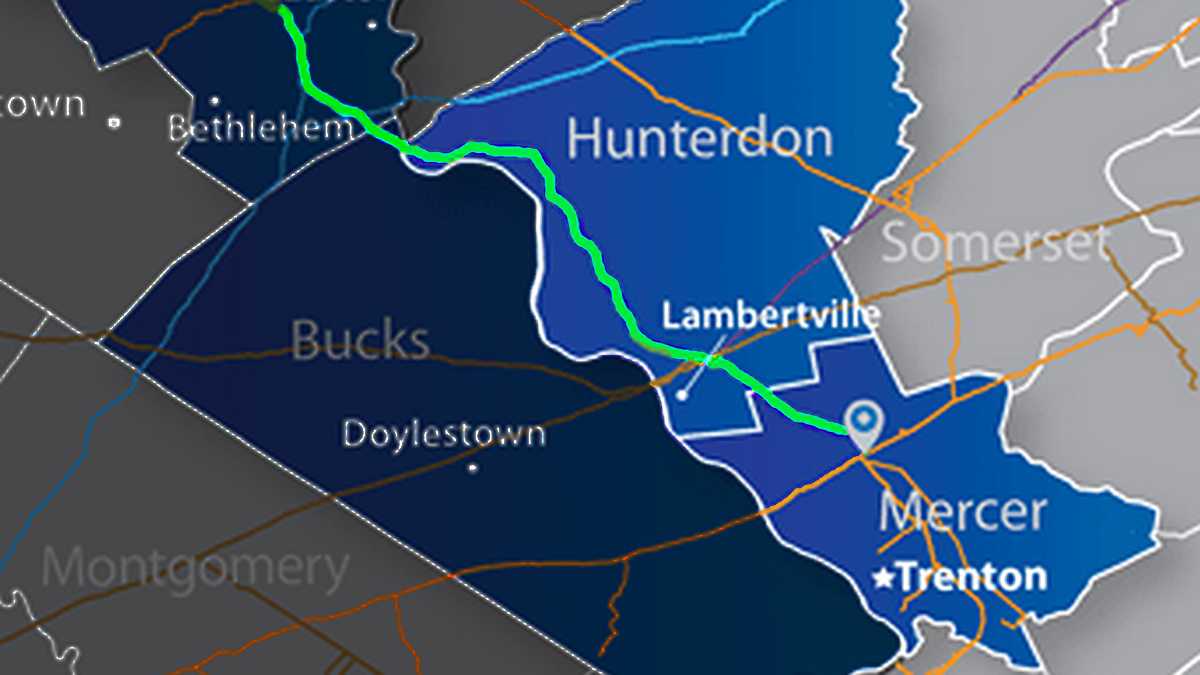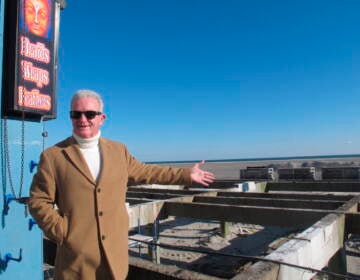Environmentalists urge more public input on PennEast gas pipeline

Environmentalists on Tuesday urged the Delaware River Basin Commission to sharply increase the opportunities for public comment on a controversial plan to build a natural-gas pipeline from northeast Pennsylvania to Pennington, N.J.
Representatives of 16 environmental and community groups asked the interstate agency to hold seven public meetings to discuss the plan for the 114-mile PennEast pipeline that would carry gas from Pennsylvania’s Marcellus Shale through several New Jersey counties.
State Impact: Your guide to pipelines
The DRBC, whose approval is needed for the pipeline to be built, wants to hold just one meeting, jointly with the Federal Energy Regulatory Commission, which must also approve the pipeline because it crosses state lines.
The “green” groups gathered at a DRBC meeting in Washington Crossing, PA, on Tuesday to present a 3,800-signature petition asking agency officials to hold public meetings in communities where the pipeline would run.
Increasing the number of public meetings would allow critics to express their views without the restriction of a two-minute time slot that would be allotted at the single public meeting proposed by the DRBC, said Dave Pringle, New Jersey campaign director for Clean Water Action.
“If they really want to protect the river, they should separate from rubber-stamping FERC, and let the people be heard,” Pringle said.
He said DRBC, which regulates water quality and supply in the river basin on behalf of New Jersey, New York, Pennsylvania, and Delaware, has determined that the pipeline would be within the agency’s jurisdiction because it crosses streams and wetlands within the basin.
Pringle argued that DRBC’s mission to protect water quality is at odds with that of FERC, which he said is likely to approve the PennEast project with little discussion.
“FERC is a wholly owned subsidiary of the gas industry,” Pringle said. “It’s just a rubber stamp for their projects.”
Opposition to the pipeline is based on concern that it would fuel climate change by increasing fossil-fuel use while encouraging the controversial process of fracking and cutting into dwindling open space, especially in New Jersey, Pringle said.
Petition organizers called for the DRBC to send “three to five” staff members to each of the proposed public meetings rather than requiring residents to travel long distances to the planned single meeting where they would be given two or three minutes each to speak, and risk being shut out altogether.
“Seven hearings across 100 miles of pipeline where the public can focus their limited comment time on one agency and its applicable regulations is not unreasonable, especially when considering how much is at stake,” the environmental groups said in a joint statement.
DRBC Executive Director Steve Tambini defended the plan for a joint meeting with FERC, saying that it would be the most efficient option, and would provide “ample” opportunity for public comment through a combination of written and oral presentations.
“The opportunity to submit written comments eliminates any risk that time limitations on oral presentations will prevent a public comment from being effectively made and considered,” he wrote in a statement.
But Maya van Rossum, head of the environmental group Delaware Riverkeeper Network, who was among the campaigners at Tuesday’s meeting, said Tambini appears to be considering the call for a series of meetings.
“I think he is open to the request,” she said.
If the DRBC agrees to hold the proposed series of public meetings, three are likely to be held in New Jersey, and the rest along Pennsylvania’s portion of the pipeline route, van Rossum said.
“We need seven DRBC-specific meetings in order to ensure fair access by all those who are being harmed by this pipeline project,” she said in a statement. “It is time to start thinking about the needs of the community rather than the comfort and ease of the pipeline company or the agencies.”
No dates have been proposed for any of the meetings because the necessary documentation, including an Environmental Impact Statement required by FERC, is not ready, van Rossum said.
Van Rossum, whose group has been accused of campaigning outside the Delaware River Basin, said the “vast majority” of the petition signers were residents of the basin.
________________________________________________________
NJ Spotlight, an independent online news service on issues critical to New Jersey, makes its in-depth reporting available to NewsWorks.
WHYY is your source for fact-based, in-depth journalism and information. As a nonprofit organization, we rely on financial support from readers like you. Please give today.




